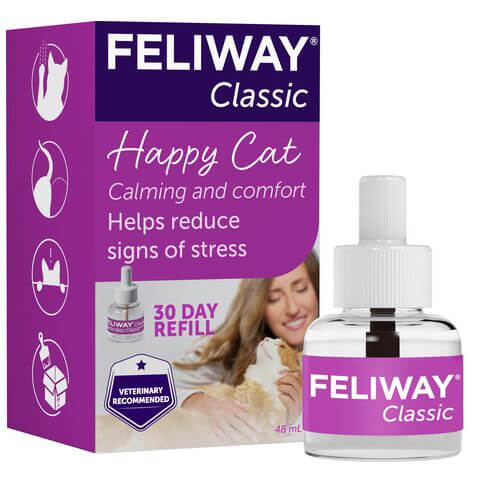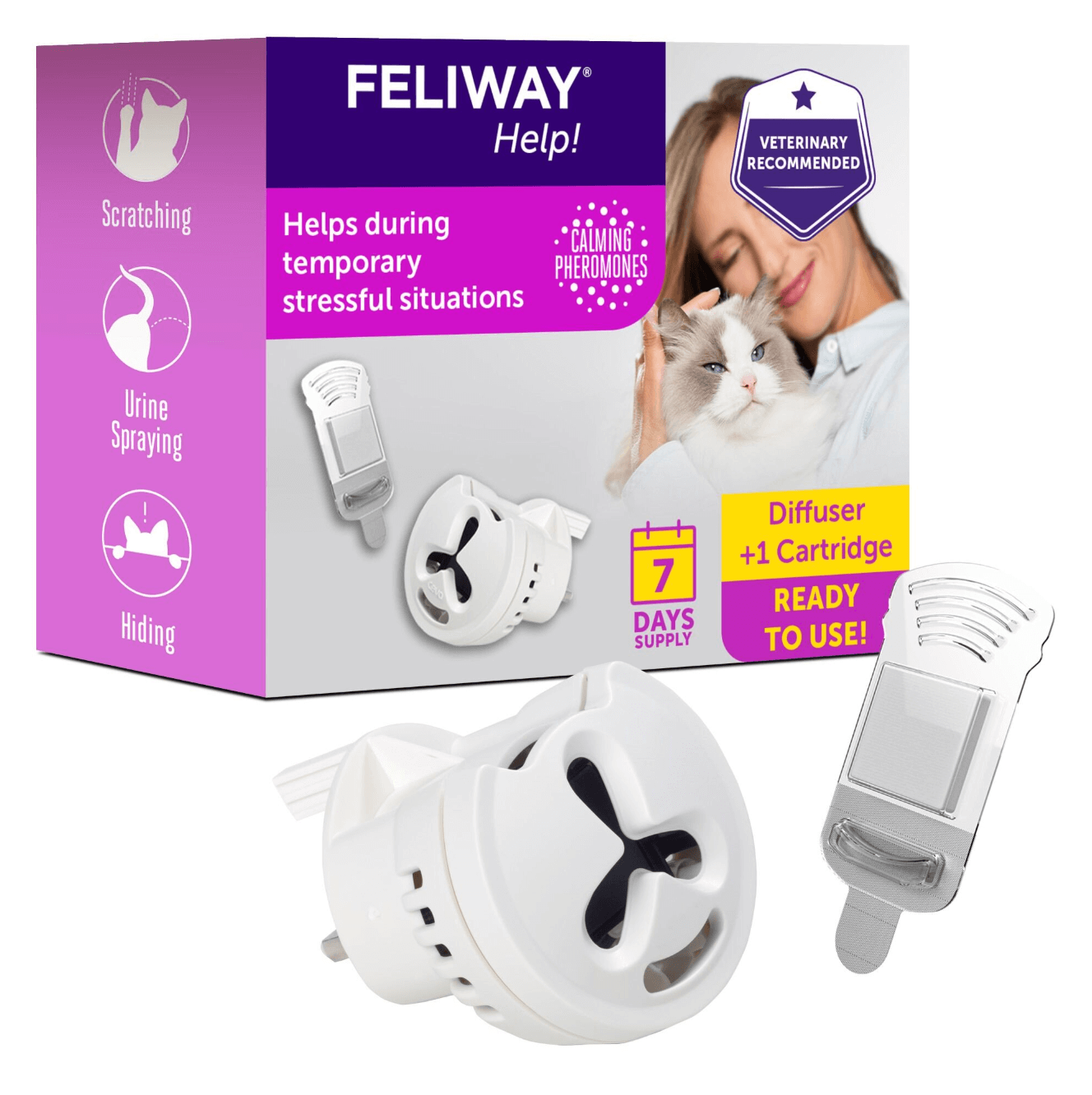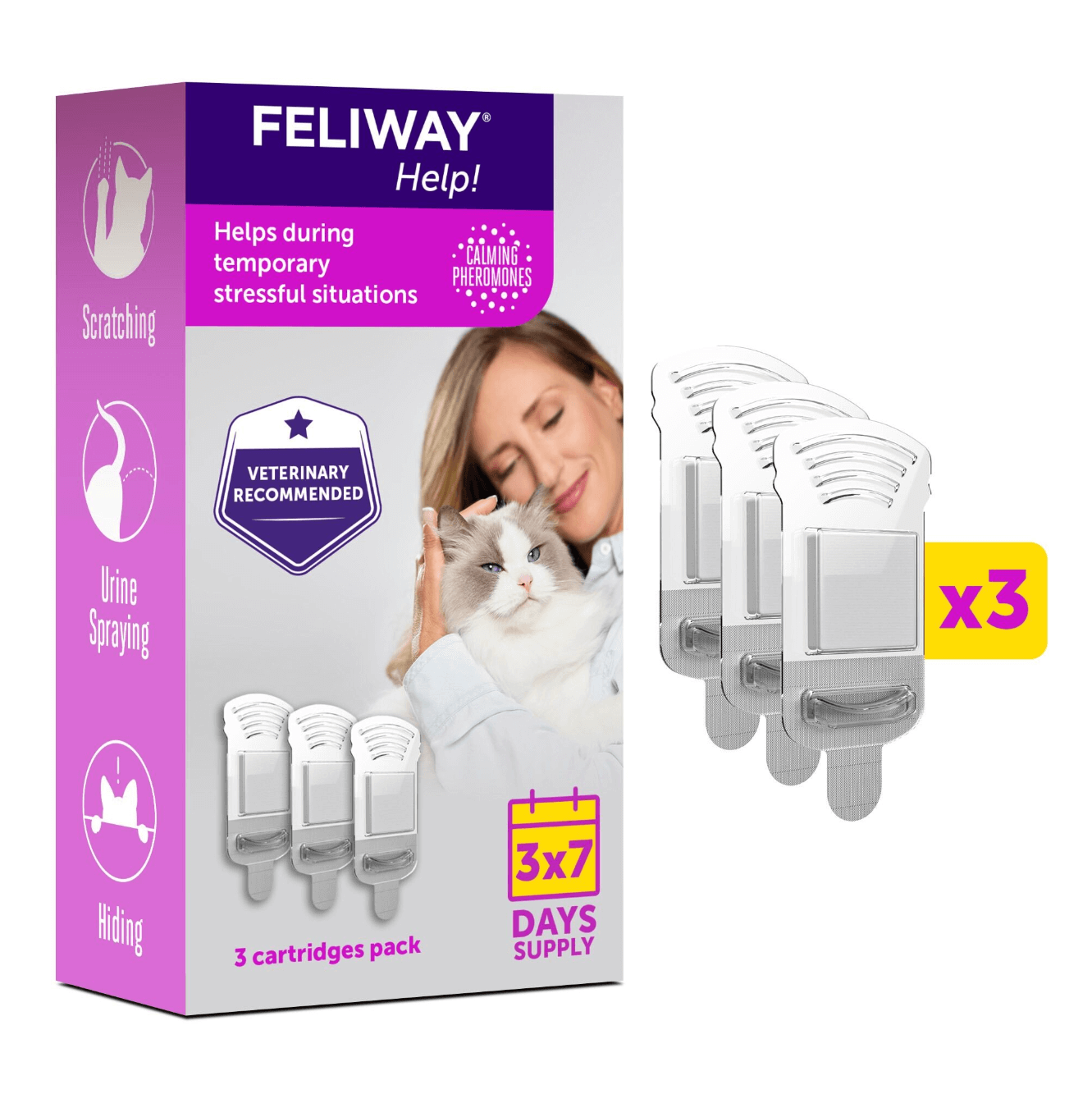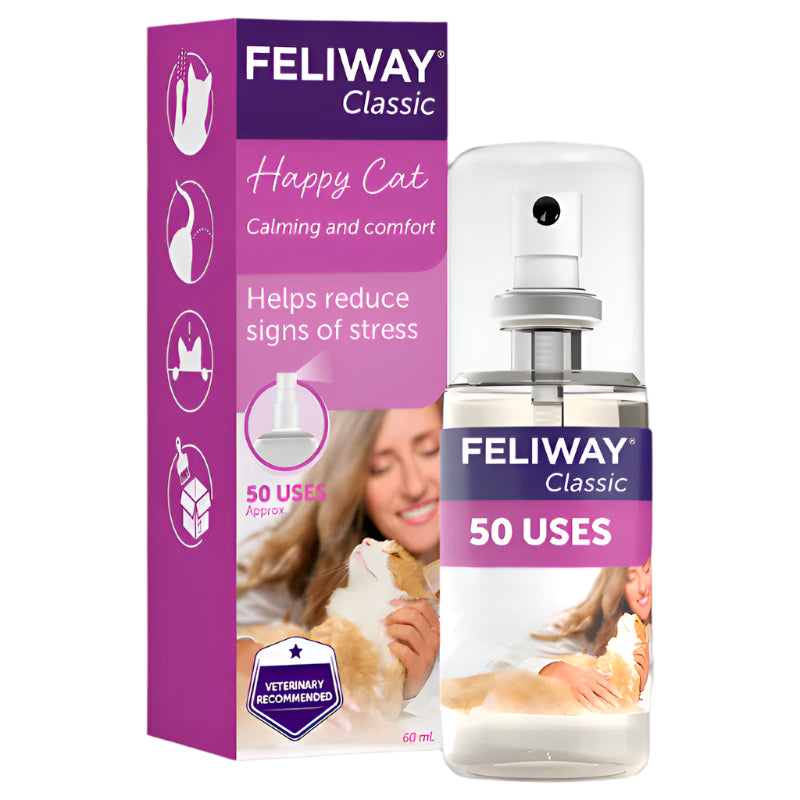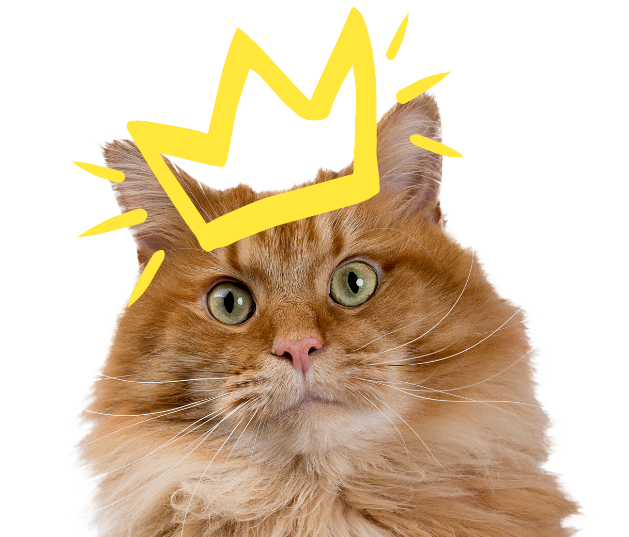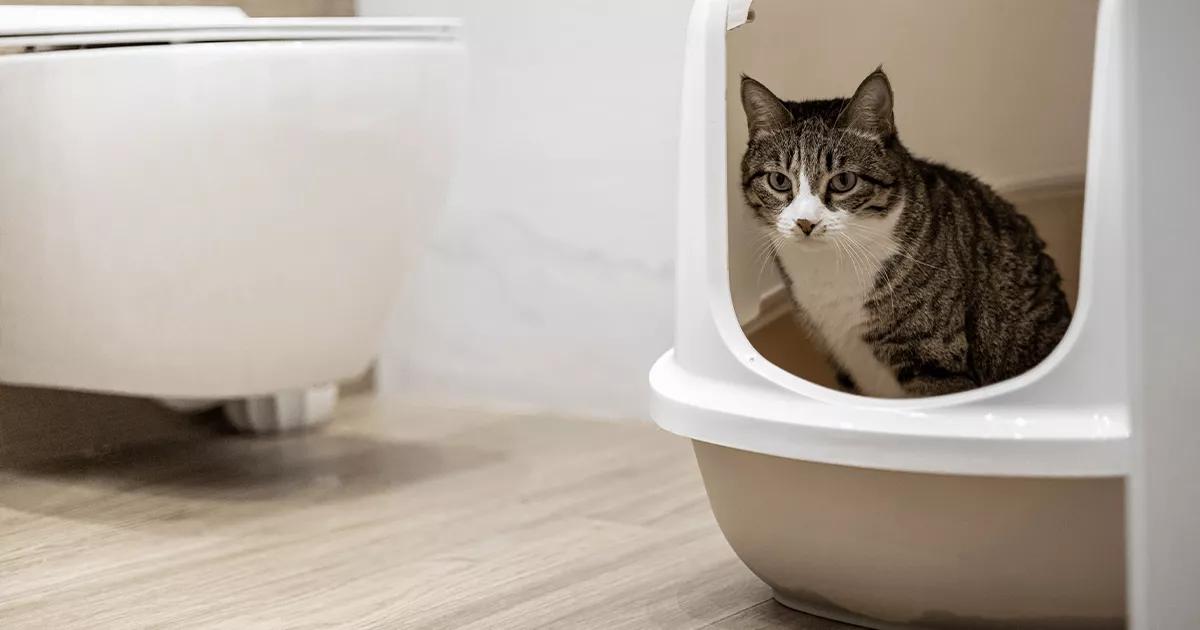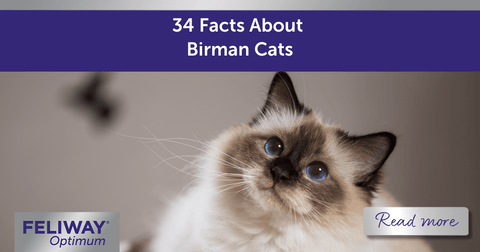Why Does My Cat Pee Everywhere? A Kitty's Point of View

Miaow! I love to keep myself in tip-top condition! I spend a long time grooming myself to make sure my coat stays clean and unmatted. We are, by nature, clean and orderly creatures – preferring things to stay consistent.
If, however, you find that your furry friend is urinating everywhere, you should try to work out the reason why. It’s usually a sign that something is wrong!
Here are some questions to ask yourself if your cat’s peeing becomes a problem.
Is your cat urinating or spraying?
Is your cat peeing, or spraying? There is a difference in our kitty behaviour!
Typically, a cat squats and urinates on horizontal surfaces when we need to empty our bladder. If we regularly pee outside the litter tray (and the tray is clean, away from our other resources, and we’ve been happy using it before), then you should get us checked over by a vet to rule out any medical issues.
Some illnesses or medications may mean that your cat drinks more and therefore urinates more often. We just might not get to the litter tray in time!
If your cat sprays onto vertical surfaces, it means we want to mark our territory! You can spot a spraying cat as, instead of squatting, we’ll stand upright with our tail raised (sometimes quivering). We then spray a small amount of urine onto that surface to leave a scent mark.
Spraying can happen when we feel threatened or stressed, perhaps by changes around the home, a new addition to the family, or another cat arriving on the scene. It makes us feel more secure!
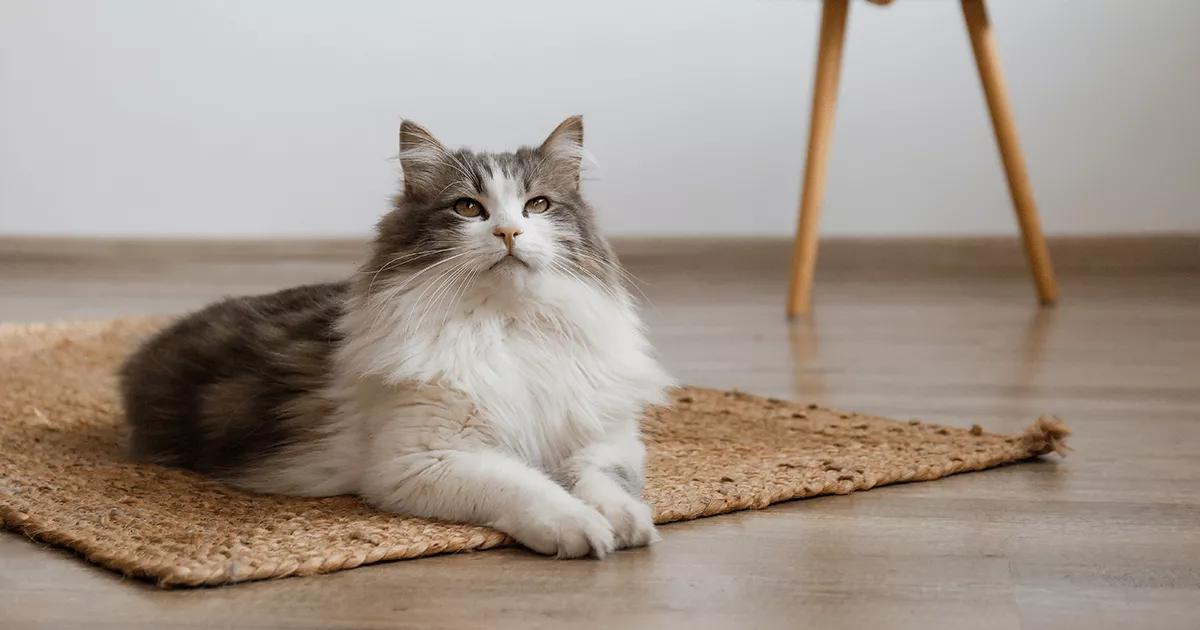
Do you think your cat is stressed?
It’s important for pet parents to be able to recognise when their cat is stressed and what we might be thinking. Get to know your kitty and understand our body language, so that you can act quickly to avoid or remove any stressors.
FELIWAY Optimum has been developed specifically with cats in mind and, used regularly, will help solve the common signs of stress in cats.
Is the litter tray the right size?
If we’re peeing in the wrong place, it could be that there is something we don’t like about the litter tray!
Perhaps you bought the litter tray when your cat was a kitten and now they’re all grown up. A litter tray needs to be at least 50% larger than your cat, to give us enough space to move around and dig a little if we want to.
If the litter tray is too small, we won’t feel comfortable and will probably pee outside the tray.
Have you moved the litter tray to a new location?
Has the litter tray been moved to a noisy area, such as close to a dishwasher or washing machine? These can be very scary when they suddenly jump into a spinning cycle, and we don’t want to be scared when we are mid-toilet!
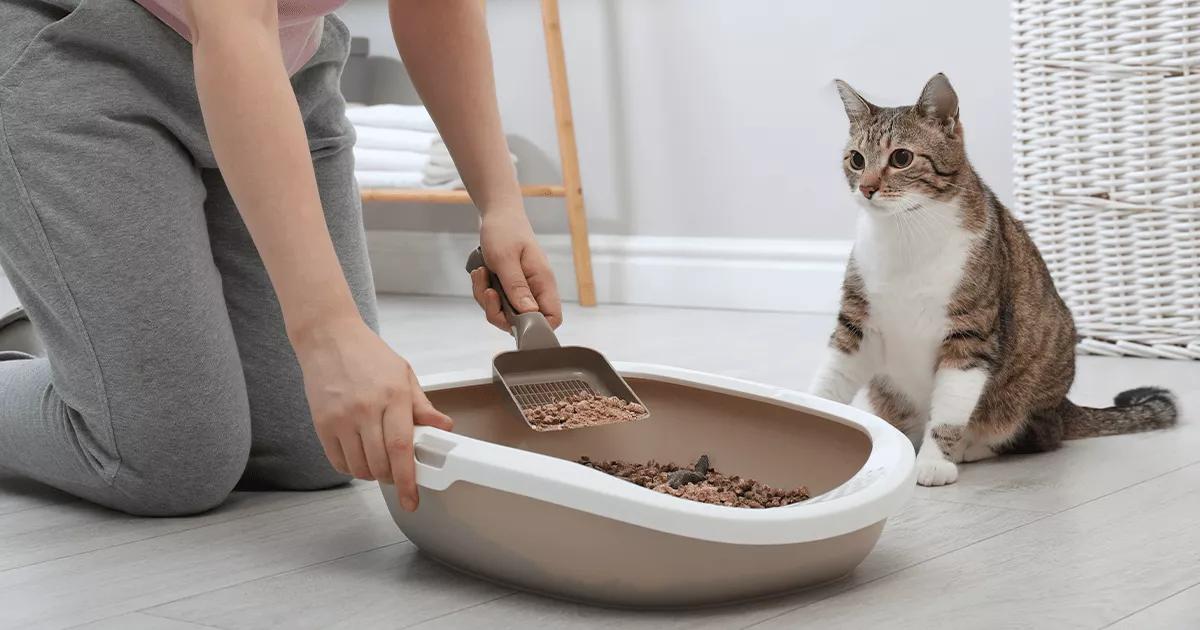
Have you changed the substrate in the litter tray?
We’re fussy about our toileting – we like the litter tray to be discrete and in the same place each time. We can also be very fussy about the substrate!
Some cats like clay litter, while others prefer pellets. I personally prefer a clumping, unscented litter with a fine consistency, like sand.
Are you expecting your cat to share its litter tray?
Sorry to break it to you, but we cats don’t like sharing! If you have a multi-cat household, the general rule of thumb is that you should provide one litter tray per cat, plus a spare.
The same goes for other resources – we like our own food bowls and our own scratching posts, too!
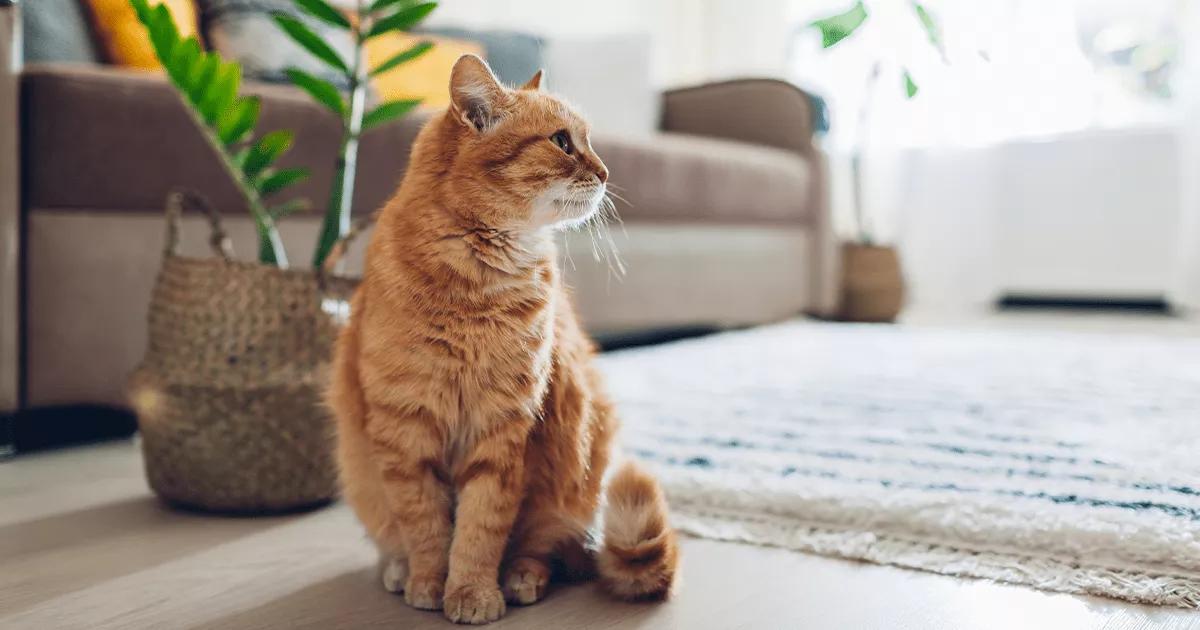
Have you made any changes to your home recently?
We don’t like change! We’re very happy if things stay the same and change can make us feel nervous and stressed.
I’ve already spoken about why I don’t like change – it could be that you’ve moved furniture around, there are lots of new visitors, or you’ve added to your pet family. Whatever has happened, this could be the reason for your cat peeing everywhere – or spraying to mark their territory.
Ways to help with inappropriate urination
If you have had your cat checked out and they are medically healthy, here are some ways that you can help your cat to stop peeing everywhere.
- Clean the marked area with a solution of biological or enzymatic washing liquid, or powder. After cleaning, use FELIWAY Classic spray on the urinated areas once they have dried. This will help your cat feel secure in the home.
- If possible, block the area to avoid repeat spraying.
- Make sure the litter tray is the right size for your cat.
- Try out different substrates until you find the one that works best for your cat. Make sure you have enough substrate in the tray not only for absorbency, but so that it’s comfortable for your kitty to dig.
- If you have more than one cat, remember the golden rule – one litter tray for each cat - in different locations - plus a spare.
-
Place the litter tray in a quiet, safe place.
- If you have an elderly cat, make sure they can get in and out of the tray easily – one with lower sides may be easier for them.
- Remember, cats have sensitive noses, so don’t use strong-smelling cleaning products.
- Replace the substrate frequently – cats don’t like to use a litter tray that is soiled. Whether you use clumping or non-clumping litter, be sure to remove waste daily, and change the tray regularly.
- If there have been changes in your work life, for example, and you are leaving the house at a different time, this may be making your cat feel anxious. Make changes gradually so that your cat can adjust slowly.
- Don’t punish us for urinating outside the litter tray – we are not doing it to spite you! Punishment will add to our worry and could make the problem worse.










